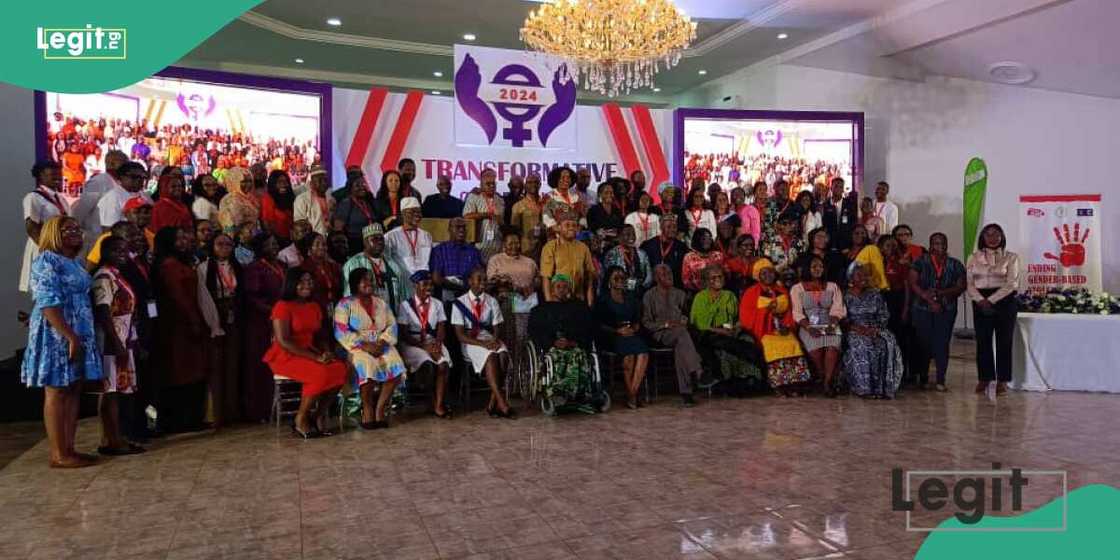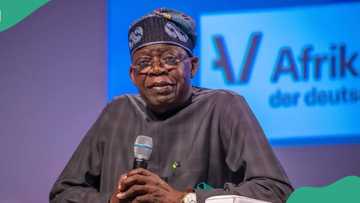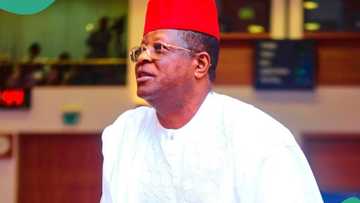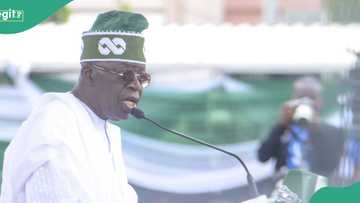Gender Equality: Tinubu Vows To Protect Women as Group Makes Case for Affirmative Action
- The Bola Ahmed Tinubu administration has reaffirmed its dedication to promoting women's participation in governance
- This pledge was emphasised by the Minister of Women Affairs, Mrs. Uju Kennedy-Ohanenye, during a gender summit held in Abuja and organized by Christian Aid
- Temitope Fashola, the Nigeria country director of Christian Aid, advocated for women's affirmative action as outlined in the national gender policy during discussions with Legit.ng
PAY ATTENTION: The 2024 Business Leaders Awards Present Entrepreneurs that Change Nigeria for the Better. Check out their Stories!
Legit.ng journalist Segun Adeyemi has over 9 years of experience covering political events, civil societies, courts, and metro
The Minister of Women Affairs, Mrs Uju Kennedy-Ohanenye, has reiterated that the administration of President Bola Ahmed Tinubu would continue to back sue for gender equity, equality and inclusion.
Kennedy-Ohanenye, represented by Mrs Funke Oladipo, the Director of Gender and Development, stated this in Abuja on Tuesday, February 28, at the third annual transformative gender justice conference organised by Christain Aide, Nigeria, in partnership with the Act Alliance Nigeria, African Centre for Leadership, Strategy and Development (Centre LSD), Action Aid Nigeria, Plan International, Girls Not Bride, Cuso International and Action Against Hunger.

Source: Original
The minister praised Christian Aid for their efforts and affirmed the ministry's commitment to advancing gender equality.
PAY ATTENTION: Сheck out news that is picked exactly for YOU ➡️ find the “Recommended for you” block on the home page and enjoy!
She emphasised the ministry's goal of fostering a Nigerian society free from gender bias and ensuring equal opportunities in politics, society, and the economy.
Additionally, she highlighted the ministry's focus on nurturing a culture that prioritises child protection and encourages both public and private sectors to support initiatives promoting women's full participation.
She said:
“The ministry has put in place some mechanism to achieve this, however, the fight against stereotyping on the basis of gender in family, schools, worship centres in our society is the responsibility of all.”
Advocacy for gender balance
Meanwhile, Mr Temitope Fashola, the Country Director of Christian Aid Nigeria, said the conference aimed to enhance discussions surrounding unequal power dynamics.
He said:
“The imbalance fueled by social cultural norms, and advanced by gender blind legislative and policy frameworks inadvertently perpetuates gender inequality.
“In terms of women participation in participatory and decision-making processes, statistics has repeatedly shown that Nigeria remains below the Global Average of 22.5 per cent."
When asked by Legit.ng if women have started gaining attention in the decision-making process of the country, he said:
"I don't think we are where we are supposed to be, and in Nigeria in particular, when you take an example of the political space, it looks as if we take one step forward, one step backwards sometimes.
"But, generally, we are not where we used to be regarding women and girls in decision-making, not just from the political angle alone but also from communities, different groups and states. And how we involve women have been, and girls have been in decision-making, participating in decision-making and governance processes."
Christain Aid backs move for 35% affirmative action for women
He, however, welcomed the agitation for implementing the 35 per cent affirmative action for women embedded in the national gender policy.
Mr Fashola told Legit.ng that the law should be promoted not only at the federal level but also at the subnational and grassroots levels.
He said:
"I think 35% affirmative action is a very important action that we should take seriously as a country and not just at the federal level, but at all levels.
"So I think we need to continue to work collaboratively with our legislators, with our executive, and also with different levels of government to ensure that this implementation is actualised within the shortest possible time."
ECOWAS: Why affirmative action for women is stalling, lawmaker reveals
Patriarchy and religious influences are being cited as reasons for the failure to enact affirmative action policies for women in countries like Nigeria, Ghana, and other West African nations.

Read also
Umahi, Tunji-Ojo, Uzoka-Anite emerge as economic group lists Tibubu's top-performing ministers
Ghanaian lawmaker Hon. Emmanuel Kwasi Bedzrah highlighted this issue on Thursday, November 23, explaining that African cultural norms hinder women from attaining equal representation in government.
PAY ATTENTION: Stay Informed and follow us on Google News!
Source: Legit.ng





